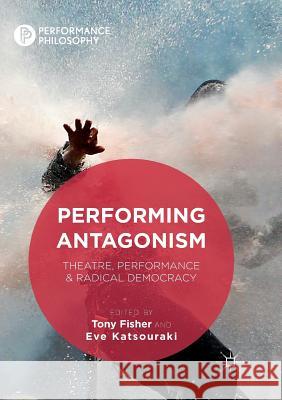Performing Antagonism: Theatre, Performance & Radical Democracy » książka
topmenu
Performing Antagonism: Theatre, Performance & Radical Democracy
ISBN-13: 9781349957279 / Angielski / Miękka / 2018 / 351 str.
Kategorie:
Kategorie BISAC:
Wydawca:
Palgrave MacMillan
Seria wydawnicza:
Język:
Angielski
ISBN-13:
9781349957279
Rok wydania:
2018
Wydanie:
Softcover Repri
Ilość stron:
351
Waga:
0.44 kg
Wymiary:
21.01 x 14.81 x 1.93
Oprawa:
Miękka
Wolumenów:
01
Dodatkowe informacje:
Wydanie ilustrowane











